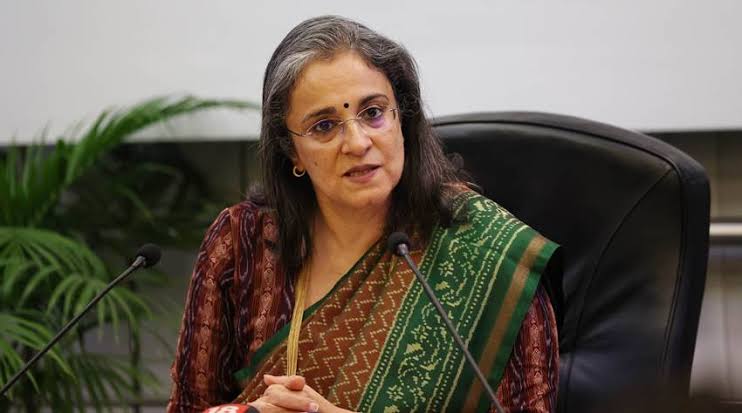The Bombay High Court on Tuesday stayed the order of the special court for four weeks, directed to register an FIR for alleged stock market fraud and regulatory violations against former SEBI chairman Madhavi Puri Buch and five other officials. The court said that this order was mechanically passed.
A single bench of Justice Shivkumar Digiga said that even in the order of March 1 of the special court, no special role of the accused in the case has been stated.
Justice Digy said, “After listening to all the concerned parties and studying the order of the special court, it seems that the order was passed mechanically without detailed information and without telling any special role of the applicants (Buch and others).”
The court said, “Therefore, the order is stayed by the next date. The complainant (Sapan Srivastava) in the case is given four weeks to file an affidavit in response to the petitions.”
This decision of the High Court came on petitions filed by Buch, three current full -time directors of SEBI, Ashwini Bhatia, Anant Narayan Ji and Kamlesh Chandra Varshney, Managing Director and Chief Executive Officer of Bombay Stock Exchange, Sundarman Ramamurthy and its former chairman and public interest director Pramod Aggarwal.
The petitions demanded the cancellation of the order passed by the Special Court, seeking the Anti -Corruption Bureau (ACB) to register an FIR against some allegations of fraud while listing a company in BSE in 1994.
The petitions states that this order is illegal and arbitrary. The special court passed the order on the complaint of media reporter Sapan Srivastava, demanding an inquiry into large -scale financial fraud, regulatory violations and alleged crimes related to corruption.
India’s Solicitor General Tushar Mehta, who appeared on behalf of three SEBI officials, said that the special court has not completely used conscience while passing the order.
Mehta argued, “Based on a vague and disturbing complaint, the special court has ordered to register an FIR. How can the current members of SEBI be held responsible for any work alleged in 1994.”
He claimed that the complainant Srivastava is a forced recovery person who is working under the guise of being a public welfare person.
On behalf of Ramamurthy and Aggarwal, senior advocate Amit Desai said that taking such action against senior members of BSE is “attack on the economy”, especially on such trivial allegations.
Desai said, “If there is any power in the allegations, yes, every public servant can be prosecuted, but not some baseless allegations like the current case.”
Buch’s lawyer Sudeep Pasbola repeated the arguments given by Mehta and Desai. Public lawyer Hiten Wanegaonkar, appearing on behalf of ACB, said that the bureau will follow any order passed by the High Court.
Srivastava, who personally appeared, denied the allegations made by Mehta against him and sought time to respond to the petitions. The petitions claimed that the special court order was “clearly flawed, clearly illegally and passed without jurisdiction”.
The petitions stated, “The court has failed to consider that the complainant has failed to make a prima facie a case of failing to discharge his duties as an officer of SEBI against the applicants.”
He said that the complainant did not submit any material to support the allegations made by him. The petitions stated, “In time, there was no need to get NOC from SEBI for listing of any share on BSE.”
According to the petitions, there can be no obligation on SEBI officials regarding the alleged crime. The petitions demanded a cancellation of the order of the special court and a ban on its implementation as interim relief.
The petitions stated that this order is not legally worth resting as the notice was not issued to the petitioners nor was heard before taking the decision. Special ACB court judge SE Bangar said in his ordered ordered that there is a prima facie evidence of regulatory lapse and collusion, which requires fair and fair investigation.
The ACB court also said that it would monitor the investigation and sought a status report within 30 days.
In the complaint, the allegations “regulatory authorities” especially from the active collusion of the Securities and Exchange Board of India, without complying with the rules and regulations under the SEBI Act, 1992 and the regulations, were related to fraud listing a company in stock exchange in 1994.









